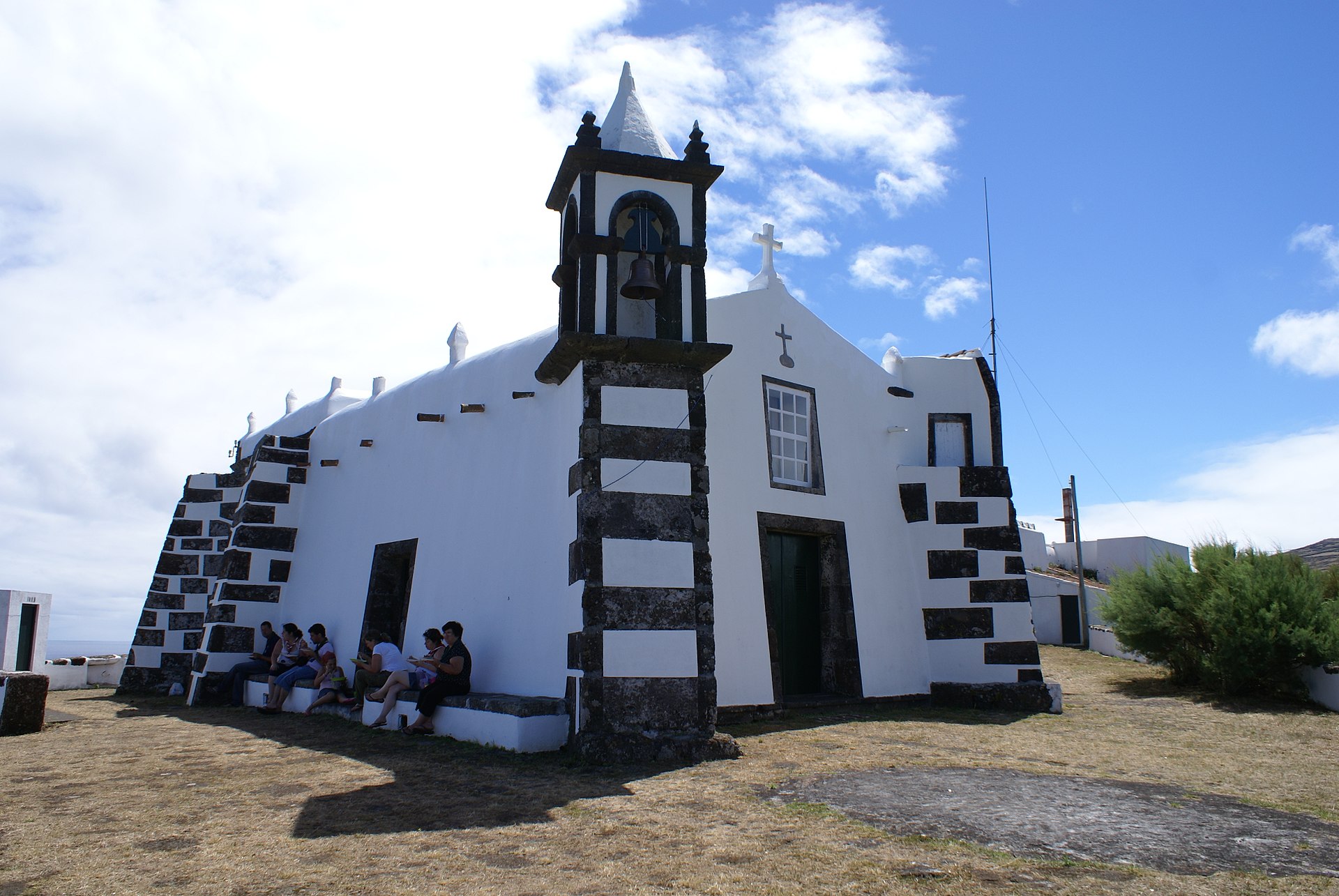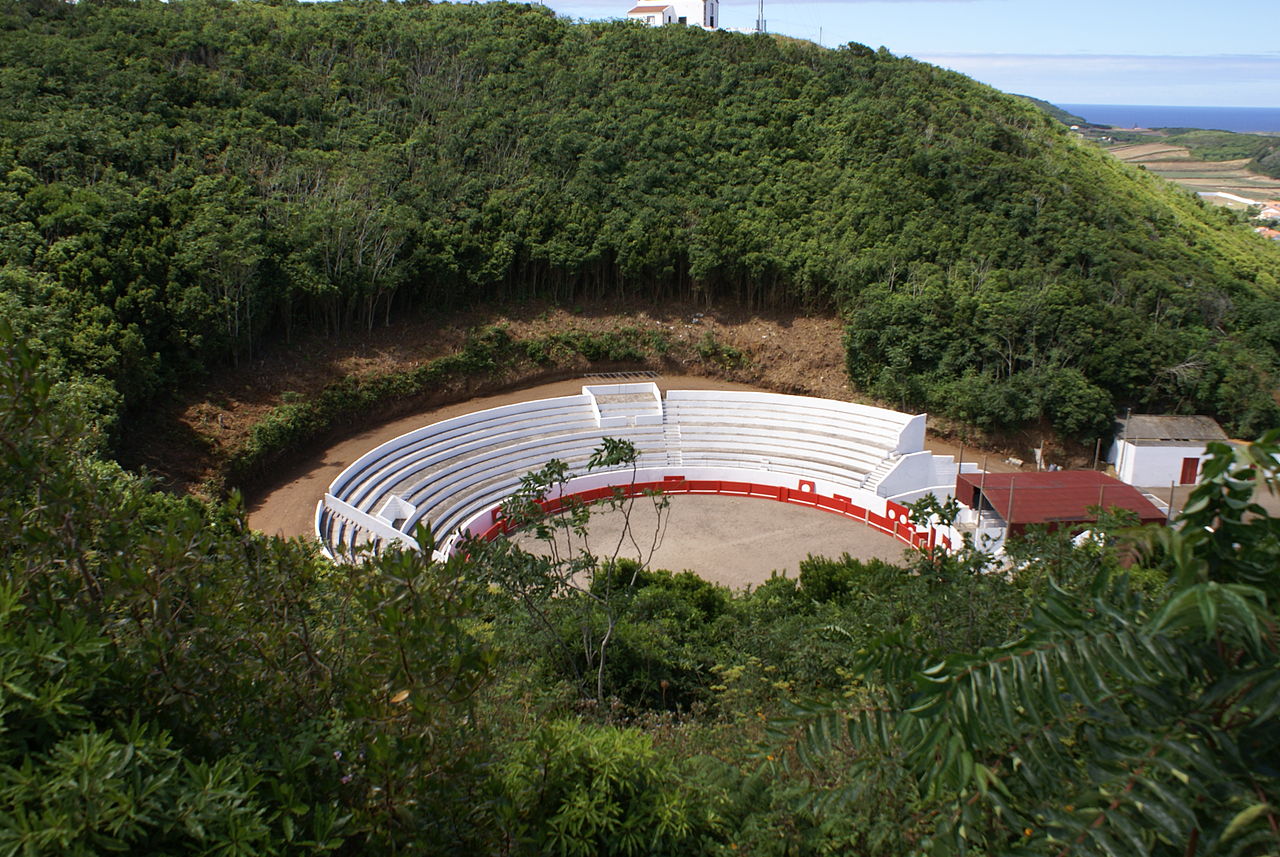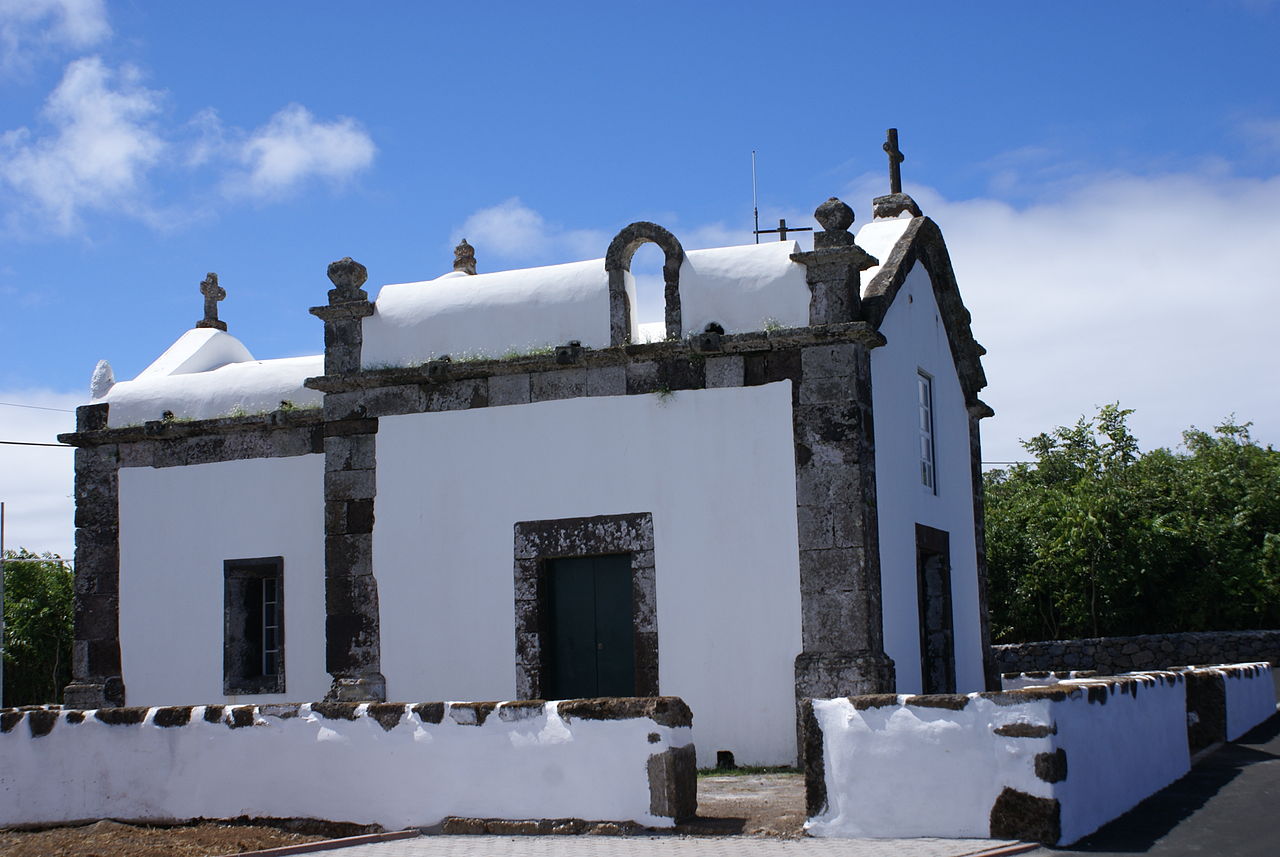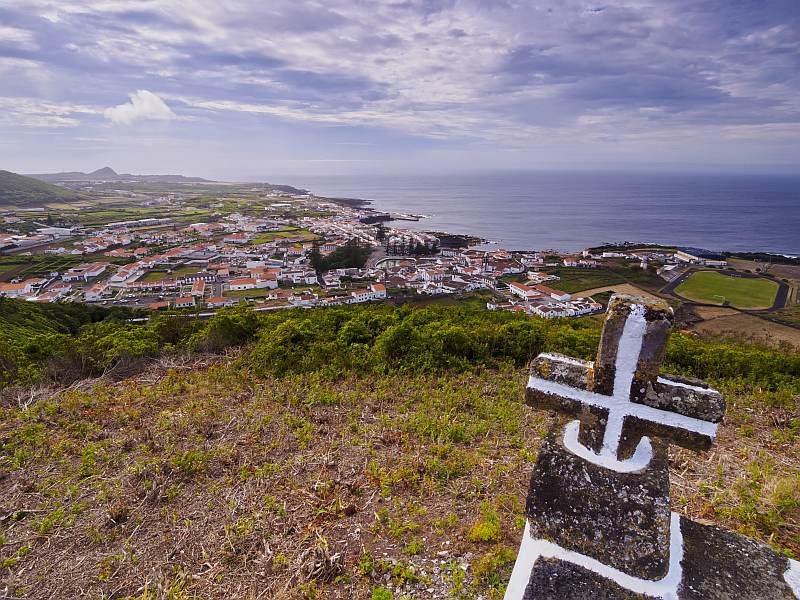Mount of Senhora da Ajuda – Graciosa Island
Mount of Our Lady of Ajuda is located in the parish of Santa Cruz, in the municipality of Santa Cruz da Graciosa, on the Graciosa Island. The panoramic view from the Mount is the most stunning in the interior of Graciosa Island.
At an altitude of 280 meters, the Mount is where the village developed at its base, due to its excellent location and observation of the coast. Furthermore, the Mount protected against strong coastal winds and had very fertile soils, ideal for the development of a community.
Índice de conteúdos [ocultar]
History
The Mount of Our Lady of Ajuda is located in a Special Protection Area of Nature, encompassing the volcanic cone of Mount Ajuda and everything above 30 meters in altitude. From this point, there is a breathtaking view of the village of Santa Cruz da Graciosa and the entire interior of Graciosa Island.

Shrine of Our Lady of Ajuda – Mount of Ajuda (C) José Luís Ávila Silveira/Pedro Noronha e Costa
Today, the Mount is mostly forested, and in its midst lies the bullring of the village, which takes advantage of the privileged location, considering the natural “amphitheater” shape of the former crater. This bullring is only used twice a year: during the Festivals of the Holy Christ of Miracles.

Bullring – Mount of Ajuda (C) José Luís Ávila Silveira/Pedro Noronha e Costa
This elevation, of volcanic origin, has three chapels: the Chapel of Our Lady of Ajuda, the Chapel of São Salvador, and the Chapel of São João. In this Special Protection Area, construction is prohibited by law.
The Mount of Our Lady of Ajuda offers unique landscapes of great beauty. When visiting Graciosa Island, it is essential to climb to it and observe the village and the Island from above.
Chapels
At the highest point of Mount of Our Lady of Ajuda, there are three chapels:
- The chapel that names the Mount: Chapel of Our Lady of Ajuda. This is a beautiful example of 16th-century religious architecture. Next to the chapel, restored in 2012, there is a house meant to accommodate pilgrims. It is in this chapel, resembling a fortress, that the procession of Our Lady of Guadalupe ends in May, “the longest in the Azores.” It was also the first chapel to be built on the Mount and is related to the legend of Our Lady of Ajuda.
- The Chapel of São Salvador, built between 1709 and 1715;
- The Chapel of São João, which was mentioned for the first time in 1557.

Chapel of São Salvador, Mount of Ajuda (C) José Luís Ávila Silveira/Pedro Noronha e Costa
Viewpoint / View of Santa Cruz
At the viewpoint of the Mount, which is 192 meters high, is where you can have the best panoramic view of Santa Cruz da Graciosa and the entire northern part of the island.
The viewpoint is next to the Chapel of Our Lady of Ajuda and offers views of the village, the sea, and the contours of the slopes. Next to this chapel was a whale watching post.
Location on the Map
Curiosities
Legend of the Chapel of Our Lady of Ajuda
It is said that long ago, when there were no buildings on Mount of Our Lady of Ajuda, in a place called Caminho Velho, a statue of Our Lady appeared mysteriously. The faithful quickly went to tell the priest, who brought the statue to the main church of the village of Santa Cruz.
However, the statue would disappear from the altar and reappear in the place where it had been found. This happened three times until the faithful understood that the statue wanted to remain there, and they decided to build a home for it.
However, they could not build the chapel exactly where the statue had been found because it was a very steep slope. They ended up building it on top of the hill. When the chapel was finished, they placed the statue in its new home and were surprised to see that the statue reappeared in the place where it had first been found.
They then decided to mark this location with a cross, indicating that this was where the Virgin wanted her home. After that, the statue never left the chapel again.
 Quick links and suggestions
Quick links and suggestions
Travel insurance with 15% discount for the Azores or another destination Click here to simulate >
Looking for trips to the Azores? See these promotions >
Rent a car in the Azores? The best rent-a-car >
Activities and Experiences during your stay? Check it out here >
See Whales and Dolphins? Book now online >
Have you had a canceled or delayed flight in the last 3 years? Receive your compensation here >



